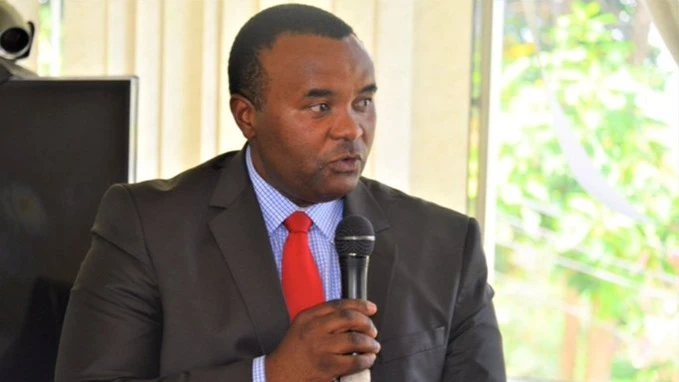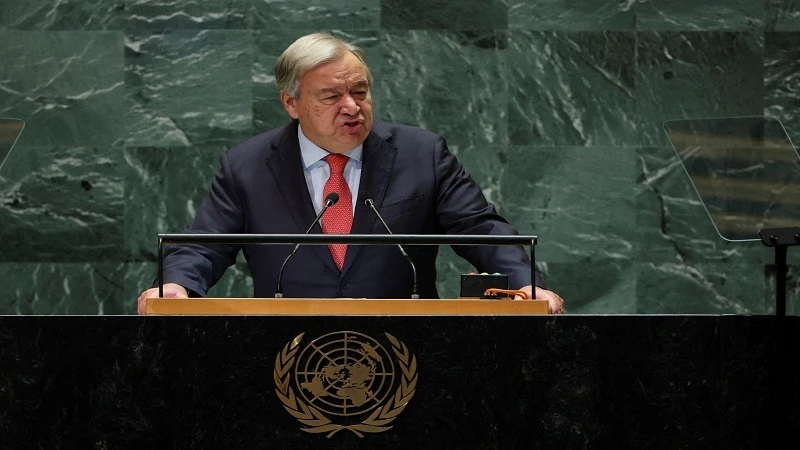New report stresses urgency to address climate change

CLIMATE change is a global concern because its effects are felt and seen everywhere across the world. Both developed and developing countries are affected although in varying degrees. This calls for urgency to address it before it is too late to make any significant intervention.
Tanzania is not left behind in seeking ways of addressing climate change impact as it participates in global efforts to mitigate it. Climate change is an urgent issue which needs not only global efforts, but also national efforts that can be translated into concrete action. A new UN report stresses this urgency to address climate change.
The UNEP FI “2024 Climate Risk Landscape Report” says 2023 “broke records for the hottest day for a staggering 116 days in a row and marked the warmest year on record.” It says the financial sector’s significant influence on economic activities—principally, through funding decisions, investment strategies, and risk management—positions financial institutions are key drivers in steering the global economy toward sustainable practices and resilience against climate impacts.
“This sense of urgency has accelerated the need for financial institutions to accurately assess and respond to the financial implications of climate change, which manifest in a multitude of forms.” The UNEP report focuses on dissecting the latest trends, methodological advancements, and approaches used to tackle common challenges in climate risk assessment process. It also provides practical steps for basing decisions on the analysis results and integrating various tools into the existing systems of financial institutions.
The report says 2023 having six record-breaking months and two record-breaking seasons in global surface air temperature, the urgency for enhanced transparency in climate-related risks and for greater resilience and adaptability have become paramount. “The year saw significant progress in global standards and regional practices for climate-related disclosures, stress testing, and green-washing, highlighting the need for additional transparency and bolstered resilience in the financial system,” it says.
In particular, the report says the 28th United Nations Climate Change Conference (COP28) in Dubai, United Arab Emirates, saw progress towards a global consensus about climate action. During that conference an agreement was reached which signalled the “beginning of the end” of the fossil fuel era by laying the ground for a swift, just, and equitable transition, underpinned by deep emissions cuts and scaled-up finance. However, not much has been achieved in cutting down greenhouse gas emissions.
COP28 participating countries were encouraged to accelerate “ambitious, economy-wide emission reduction targets” in their next nationally determined contributions. The agreement also clarified the need to more than double the current levels of adaptation finance to meet urgent and evolving demand.
“This global consensus sets the stage for governments and policymakers to intensify their efforts to address climate change. For financial institutions, these developments signal the likelihood of heightened compliance requirements and reinforce the necessity to adapt rapidly to a changing regulatory landscape influenced by climate imperatives.” Where such efforts are brought to the grassroots there is the likelihood of success while where they remain at conference level there is no change taking place as far as addressing climate change is concerned. Thus, this saying ‘think globally and act locally’, makes a lot of sense when it comes to the implementation of global climate change commitments.
The report suggests that increasing accessibility of data from governments, universities, and nongovernmental organisations is revolutionising how corporations approach climate-related challenges. Enhanced by the rise of open-source climate tools, there is now rich information readily available. Although primarily available at national or global levels, these tools still serve as essential preliminary filters that enable users to gain an initial understanding of climate-related risks in the regions in which they operate. They are crucial in offering both a general overview and specific insights of potential risks and impacts related to climate challenges across various scales and sectors.
Citing Hansen and colleagues in their study of 2023, the report says research shows the likelihood of the global temperature increase reaching 2 Celsius by 2050, given the current carbon dioxide concentrations and the latest calculations of Charney (fast-feedback) equilibrium climate sensitivities. “This potential discontinuity between 1.5˚C and 2˚C scenarios could make predicting outcomes of climate change’s impacts exceedingly challenging,” it says.
The report suggests that in an increasingly volatile climate landscape, astute decision-making lies in sustainable financial management. It says utilising climate risk assessment results effectively is not just about understanding data, it is also about converting these data into actionable insights to fortify financial strategies. Thus, financial institutions will need a structured pathway of decision-making.
This calls for local efforts to address climate change in a manner that reflects global commitments, but grounded in concrete action at national and local level. When climate change is prioritised in national programmes it becomes easy to address it, but when it is seen as something that can be addressed by others, then it becomes a problem. So, every Tanzanian must participate in climate change mitigation and it is only through this that it can be addressed at local level and reflect the urgency it needs.
Top Headlines
© 2024 IPPMEDIA.COM. ALL RIGHTS RESERVED

























